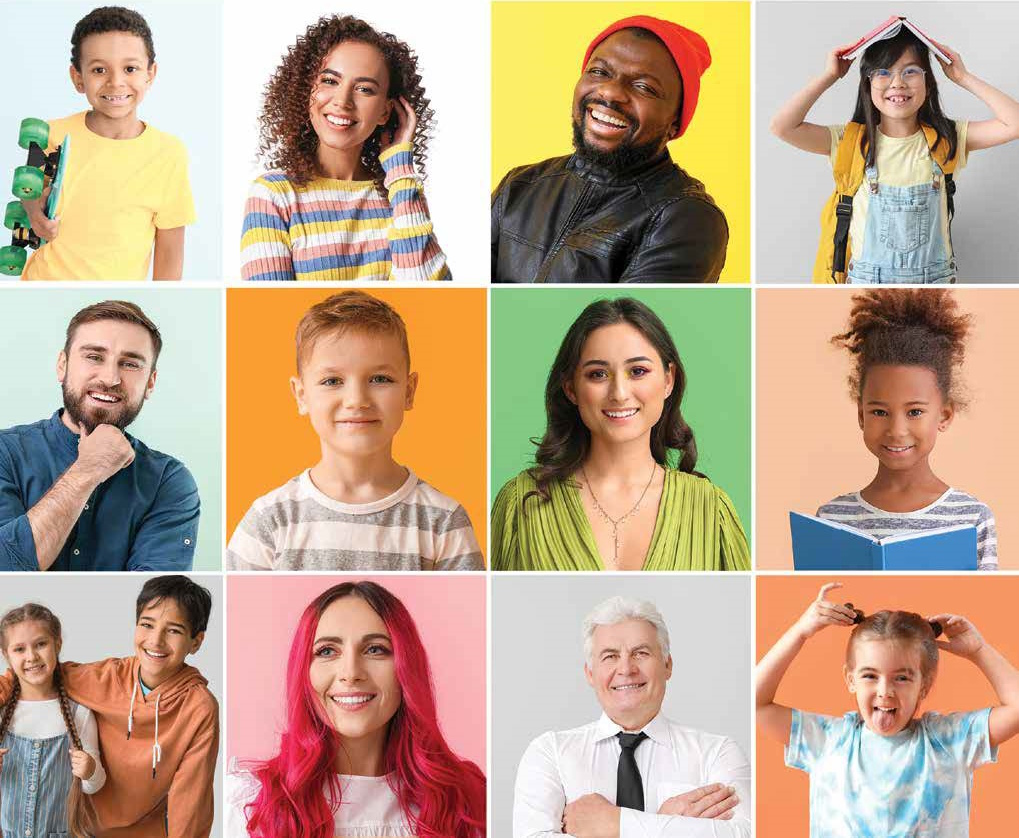What is ADHD?
Everybody can have difficulty sitting still, paying attention or controlling impulsive behavior once in a while. For some people, however, the problems are so pervasive and persistent that they interfere with every aspect of their life: home, academic, social and work.
Attention-deficit/hyperactivity—ADHD—is a neurodevelopmental disorder affecting 11 percent of school-age children. Symptoms continue into adulthood in more for more than three out of four people diagnosed as children. ADHD is characterized by developmentally inappropriate levels of inattention, impulsivity and hyperactivity.
Individuals with ADHD can be very successful in life. However, without identification and proper treatment, ADHD may have serious consequences, including school failure, family stress and disruption, depression, problems with relationships, substance abuse, delinquency, accidental injuries and job failure. Early identification and treatment are extremely important.

ADHD Awareness
The Many Faces of ADHD
Ever wondered why we still need ADHD Awareness Month? After all, CHADD has been supporting individuals and families affected by ADHD since the mid-1990s, there…
Read MoreOctubre es el Mes de Concientización sobre el TDAH
Featuring Gabriela Navarro, CCMA, and Liseth Suarez CHADD Health Information Team Recursos en Español Nuestras especialistas en información hablaron con Univision Noticias para crear conciencia…
Read MoreTogether for Every Child
ADHD Europe and the ADHD Awareness Coalition A child’s environment plays a vital role in shaping their self-esteem, confidence, and long-term success.…
Read MoreAttention Matters: 2025 ADHD Awareness Month
The ADHD Awareness Month Coalition October is ADHD Awareness Month, and the ADHD Awareness Month Coalition podcast unpacks what ADHD really means, dispels…
Read MoreADHD Awareness Month: Connecticut Proclamation
Click image to see the proclamation. State of Connecticut By His Excellency Ned Lamont, Governor: An Official Statement WHEREAS, according to the ADHD Awareness Coalition,…
Read MoreMoving Forward with ADHD Every Day
As the end of ADHD Awareness Month gets closer, we reflect on the many ways we have moved awareness forward. Our messages about ADHD as…
Read MoreMoving Forward with ADHD Awareness
October is ADHD Awareness Month. CHADD is working with partners in the ADHD Awareness Month Coalition to educate people on the facts of ADHD—symptoms, diagnosis,…
Read MoreOur Shared Experience: ADHD Awareness Month
There is a saying: If you know one person with ADHD, then you know one person with ADHD. It means that everyone’s experience with ADHD,…
Read MoreThe Many Faces of ADHD
Ever wondered why we still need ADHD Awareness Month? After all, CHADD has been supporting individuals and families affected by ADHD since the mid-1990s, there…
Read MoreADHD Awareness 2024: Awareness Is Key!
The goals of the early ADHD Awareness Days declared by the United States Senate continue every October with ADHD Awareness Month. This year, the ADHD…
Read MoreADHD and Stigma: Research Briefs
What does the current research show about stigma and ADHD? This research update reviews two recent studies examining stigma surrounding individuals with ADHD. Stigma can…
Read MoreSometimes Invisible
How to Spot ADHD without Hyperactivity Natalie was sitting in her classroom chair listening to her teacher, but then she started thinking about her upcoming…
Read MoreADHD Advocacy
CHADD Response to NYT Magazine, “Have We Been Thinking About A.D.H.D. All Wrong?”
As the nation’s leading organization dedicated to children and adults with ADHD, CHADD comments on media coverage that contains misleading or inaccurate information. This response…
Read MoreThe Importance of Adult ADHD Guidelines
Featuring Dr. Peter Jensen, MD. Dr. Peter Jensen, founder and Board Chair of the REACH Institute, is the director of a coalition of national organizations that are developing adult ADHD diagnosis and treatment guidelines for use in the United States, a joint effort of CHADD and APSARD.
Read MoreWhat Is ADHD? How It Impacts Children and Adults
Featuring Max Wiznitzer, MD, Co-chair of CHADD’s Professional Advisory Board Download PDF Learn more about ADHD before the lunch and learn: About ADHD – Overview The Science of ADHD Diagnosing ADHD Treatment of ADHD Frequently Asked Questions Have questions? Email the public policy co-chairs at PublicPolicyLiaison@CHADD.org.
Read MoreTips for Handling the Medication Shortage
ADHD Medication Shortages: What to Know and Do By Andrew Adesman, MD, and Anna Krevskaya, MD Attention, October 2023 In recent years, many new stimulant…
Read More



